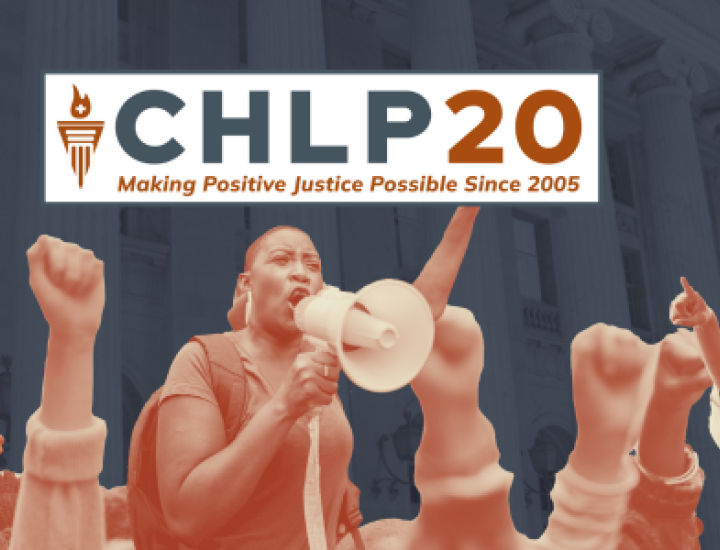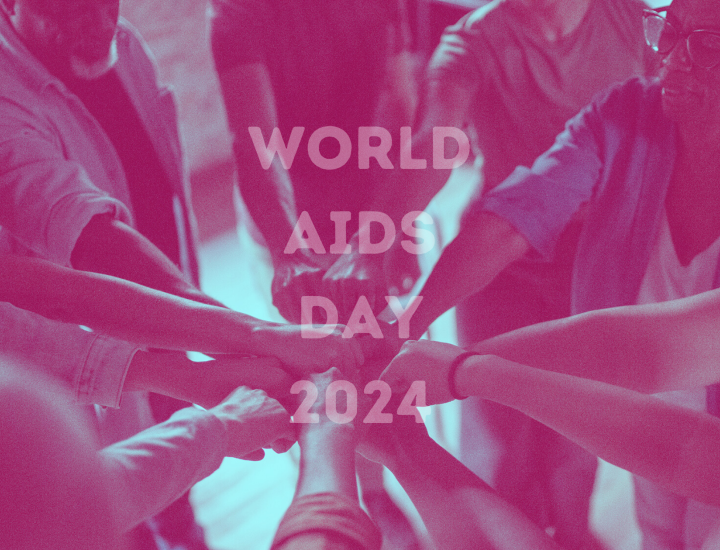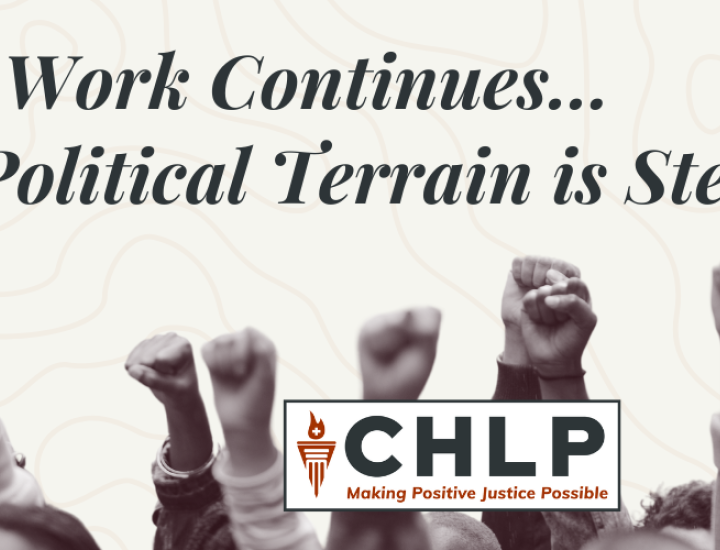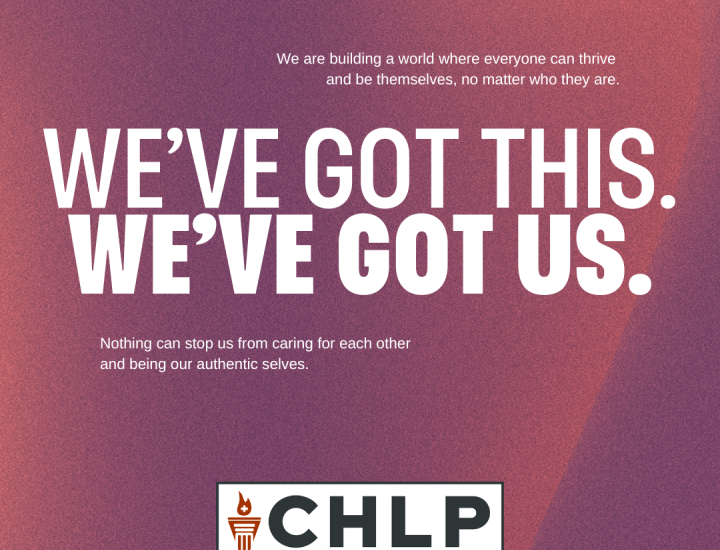Statement: From Ugly Laws to the Executive Order and Beyond--We Reject Defunding and Criminalization
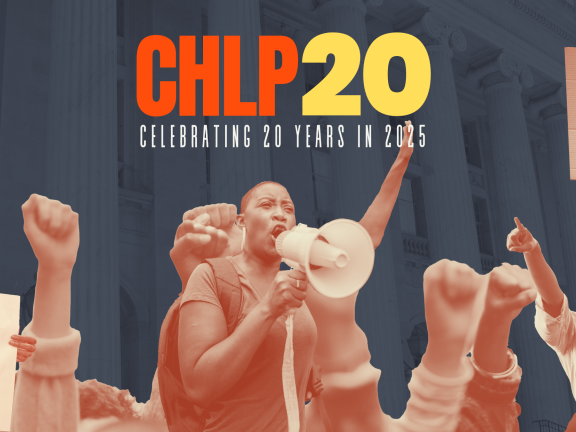
Last week, the Trump administration issued an executive order ushering in a new phase of its assault on Black, brown, LGBTQ+, and working-class communities. The order escalates systemic violence inflicted on people living with mental health and substance use disorders and experiencing houselessness by cutting funding for proven public health solutions and doubling down on dehumanizing carceral approaches, such as “civil commitment.” Not only does this administration seek to defund public health services, but it also aims to criminalize the provision of these services and punish the people who access them. This escalation can only be understood as eugenics — plain and simple.
The executive order launches a full-scale attack on evidence-based public health practices that center the humanity and autonomy of people most impacted by oppressive systems. It mandates that federal officials end support for “housing first” programs. Similarly, it asks federal officials to consider implementing a requirement that participants engage in mental health or substance use disorder treatment before receiving housing support.
“Housing first” models provide stable housing and holistic support without any precondition, such as sobriety or engagement in substance use disorder treatment. These services are vital for people living with manageable health conditions, such as HIV, because they address the immediate needs of people marginalized from healthcare, housing, and other systems by providing accessible, nonjudgmental care. The administration’s efforts will limit the reach of these programs by defunding and radically restricting access to them, which will disproportionately impact Black, brown, working-class, and LGBTQ+ people.
The executive order similarly demands a review and termination of grants related to harm reduction, while urging federal law enforcement to consider criminal and civil punishment for programs receiving federal housing assistance that provide harm reduction services, including distributing drug use equipment or offering safer spaces to use drugs.
Harm reduction is the most effective strategy for lessening the negative effects of institutional failures, including our housing shortage, the overdose epidemic, and the mental health crisis. It is inspired by the generations of Black, brown, and Indigenous people who have created and maintained community through collective, compassionate care.
“The coordinated attack on harm reduction services, including housing first programs, directly threatens public health, especially the health of Black, brown, LGBTQ+, and disabled people. It is another example of this administration’s aim to isolate and erase entire portions of our communities to advance its Christian, white nationalist agenda,” says Sean McCormick, Staff Attorney at CHLP.
We reject the administration’s broad assault on these evidence-based public health practices. We demand accessible care that centers the dignity and autonomy of people most impacted by systemic oppression.
Furthermore, the executive order relies heavily on “civil commitment,” also called civil confinement. It specifically orders federal prosecutors to evaluate every unhoused person arrested for any federal crime for potential civil confinement.
Civil confinement is a process of incarcerating people purportedly living with stigmatized conditions for a potentially unlimited amount of time. Civil confinement schemes vary, allowing for the indefinite detention of people who have completed prison sentences for sexual and other offenses, as well as people who have not been convicted of any crime, such as people living with a mental health or substance use disorder. These processes exist outside of the criminal legal system, meaning courts do not apply many common legal protections available in criminal proceedings. While often justified as beneficial to people in need of resources and support, the civil confinement system serves as a means to sweep “undesirable” people off the streets and into carceral facilities. Many people who are civilly confined are detained in facilities for years, waiting for a release that may never come.
Civil confinement has disproportionately targeted and oppressed Black, brown, LGBTQ+, and working-class people living with disabilities for generations. People living with HIV, including Nushawn Williams, have been incarcerated through the civil confinement process in “shadow prisons” due to racist narratives about the inherent dangerousness of Black and brown people living with HIV. In 1999, Nushawn was convicted and sentenced to a 12-year prison term, but after completing his sentence, then-New York Attorney General Andrew Cuomo filed a motion to have Nushawn involuntarily detained through one version of New York’s civil confinement scheme. Nushawn remains in detention, more than a decade after completing his sentence.
The executive order further aims to dismantle any significant guardrails on these coercive and dehumanizing approaches by urging the U.S. Attorney General to undo legal precedents and settlements. Although civil confinement has been used to involuntarily detain people living with stigmatized health conditions, including people living with HIV in recent decades, the practice has been partially limited by legal precedents. The executive order seeks to fully unleash all forms of civil confinement as a response to our public health problems by potentially reversing these narrow protections.
We are firmly against civil confinement and “shadow prisons” as they exist now and condemn any attempt to expand their scope, because we know it is a scheme to dispose of entire communities seen as undesirable.
The executive order similarly seeks to increase enforcement of loitering and drug laws and to expand funding for state and local governments and organizations that are implementing these criminal legal approaches. Additionally, it further expands surveillance of and data collection on people living with stigmatized health conditions and experiencing houselessness to increase the scope of carceral control.
The administration’s actions mark a reinvigoration of eugenicist laws aimed at stigmatizing, marginalizing, and invisibilizing people living with disabilities. It echoes the era of “Ugly Laws” enacted in the late 19th and early 20th centuries that criminalized the presence of disabled people in public spaces and wrote ableism into law. Much like civil confinement and other carceral strategies put forward in the executive order, these laws punished people based on their health and housing status.
“We have generations of proof that dehumanizing and criminalizing people does not lead to an increase in public health, safety, or sustainable communities. This executive order is a resurrecting of violent and ineffective Ugly Laws that line the pockets of the wealthy invested in privatized forms of institutionalization and incarceration. Our communities need resources, not more exploitation and extraction. Harm reduction has a proven track record of offering the vital care and support we all need throughout our lives. Disabled people have been and always will be the dreamweavers, world builders, and architects towards collective liberation for all of us,”
This is more than simply a partisan issue. Politicians across the political spectrum continue to invest in civil confinement and other criminal legal approaches as viable strategies for addressing houselessness, mental health concerns, and substance use disorder. For example, California, led by Democratic Governor Gavin Newsom, recently expanded involuntary examination, treatment, and detention for people experiencing mental health crises.
Democratic leaders have also attacked and undermined harm reduction programs, including Philadelphia Mayor Cherelle Parker who entirely defunded syringe service programs in the city budget. She then signed legislation significantly restricting the use of community-based mobile vans that offer medical, harm reduction, and other services to underserved Philadelphia neighborhoods. These now severely restricted services have been essential for overcoming the structural barriers that undermine health for marginalized Philadelphians.
Carceral approaches will not address our public health issues. They will only worsen health disparities for communities marginalized from healthcare and other systems and inflame medical mistrust.
Furthermore, by divesting from public health solutions and reinvesting in carceral strategies, the federal administration and state and local governments will place more Black, brown, working-class, and LGBTQ+ people at risk of criminalization due to their health status. With fewer resources and less access to support, more people will be unable to manage chronic conditions, exposing them to prosecution through HIV criminalization laws, “civil commitment,” or other carceral tactics. Moreover, every interaction with the carceral system further limits a person’s ability to access income assistance, stable housing, and employment upon release due to collateral consequences, leading to a perpetual cycle of incarceration and release solely due to one’s health status.
We demand that all leaders, including those purportedly resisting this administration’s onslaught, reject these racist, classist, and ableist assaults on our people. Any strategy that denies the humanity and autonomy of people living with stigmatized health conditions is unacceptable. We will continue to push for approaches that meaningfully invest in proven strategies to bring health and safety to our communities.
